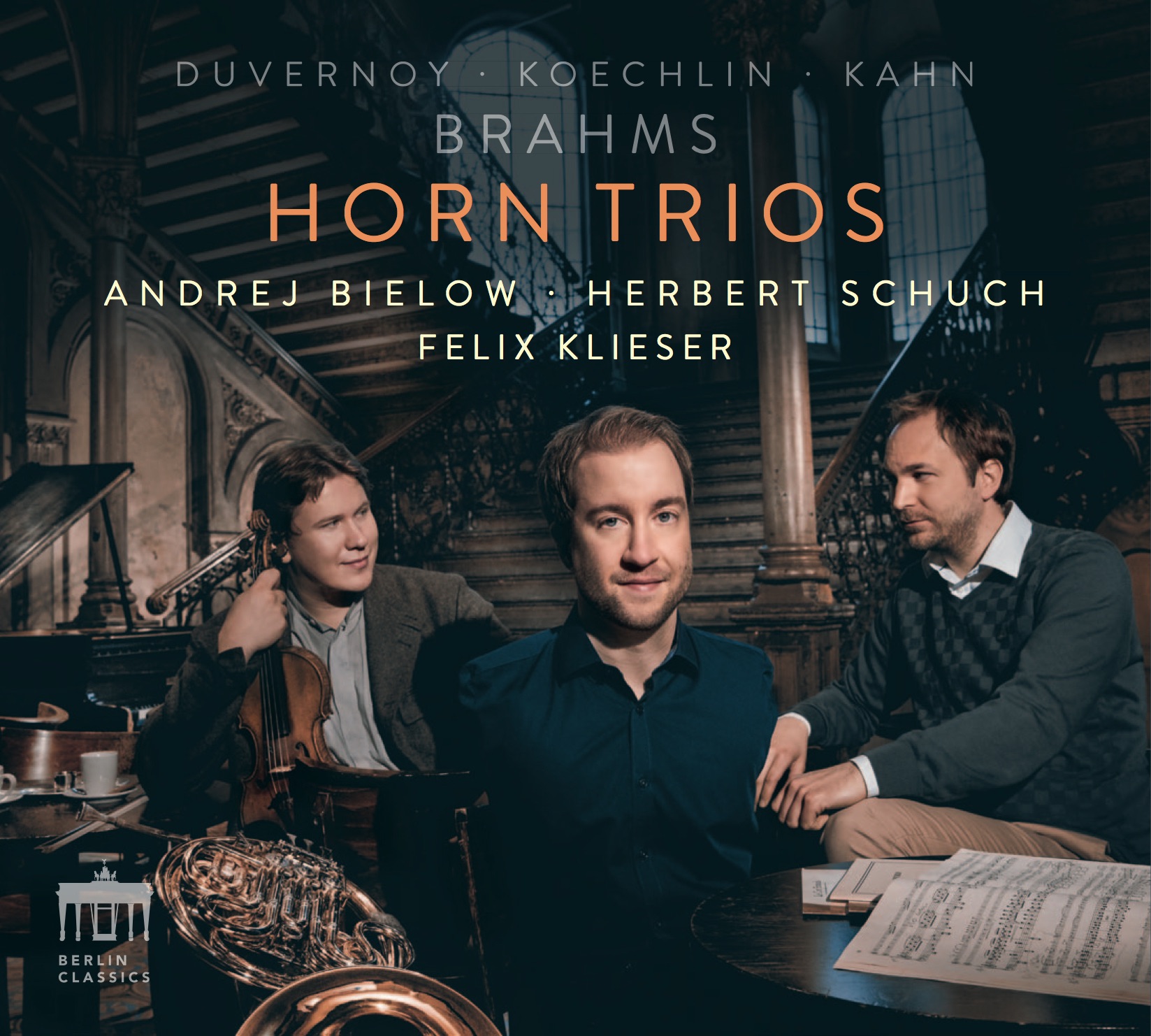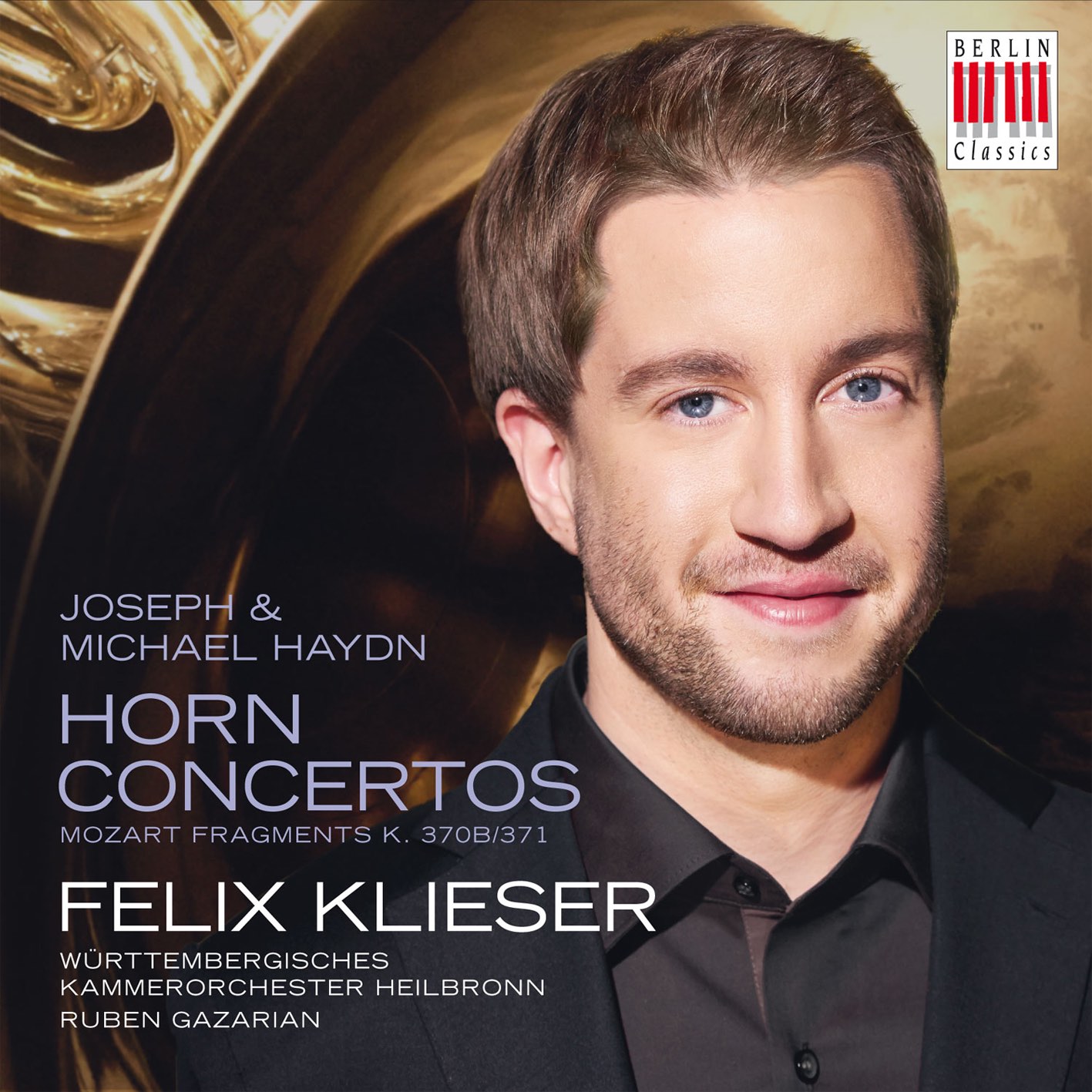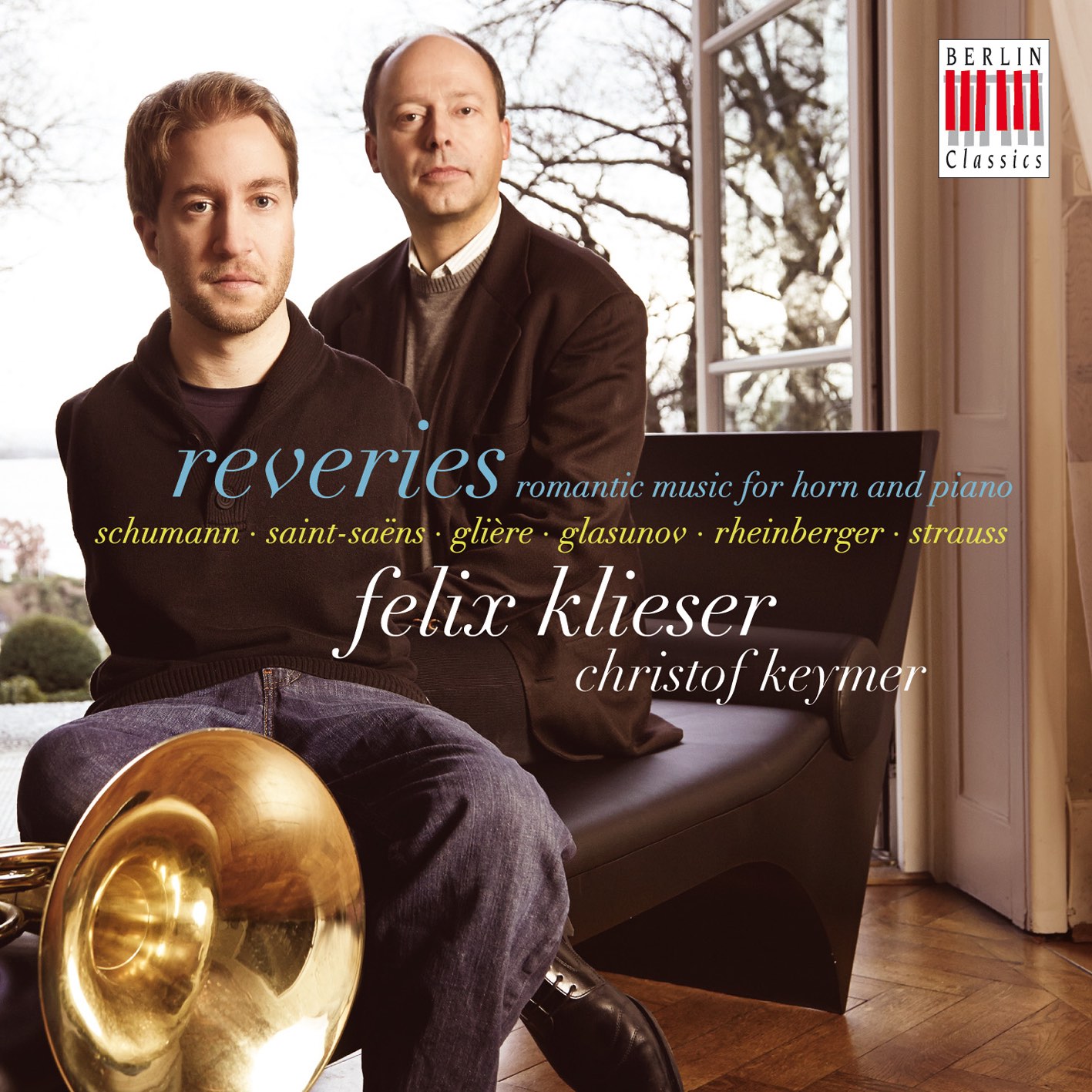Felix Klieser – A Golden Christmas
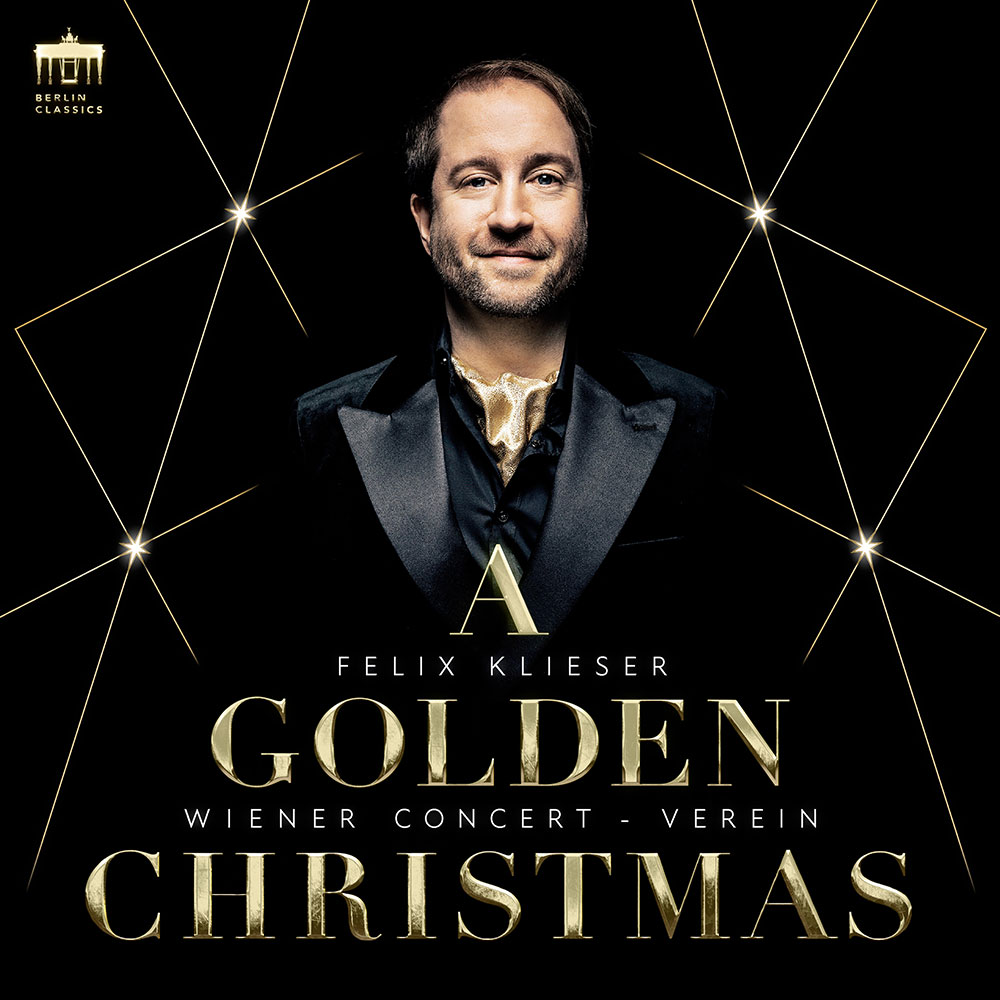
Release Date : 10.11.2023
Label : Berlin Classics
Catalog ref.: 0303074BC
Horn player Felix Klieser loves snow and the freezing cold, even if he doesn’t get much of it at home in Hanover. Winter has been his favorite season ever since he was a child – and not just for climatic reasons: “I’m still an absolute Christmas fan today and can’t think of anything better than coming back into a warm house after a walk in the snow and slowly thawing out with a cup of hot chocolate. Little lights, tins of cookies, a visit to the Christmas market – this time of year is definitely my highlight,” enthuses the horn player.
“A Golden Christmas” is intended to act as a light in dark times and put us in a festive mood. This was no easy task, as the recordings were made in the height of summer in Vienna, which made it simply impossible to imagine snowy winter landscapes, candles and open fires. But the musicians knew how to help themselves: “We brought some Christmas decorations, unwrapped some cookies and off we went,” reports Felix Klieser with a grin, providing an audio guide to this album.
Felix Klieser & Zemlinsky Quartett – Mozart & Haydn
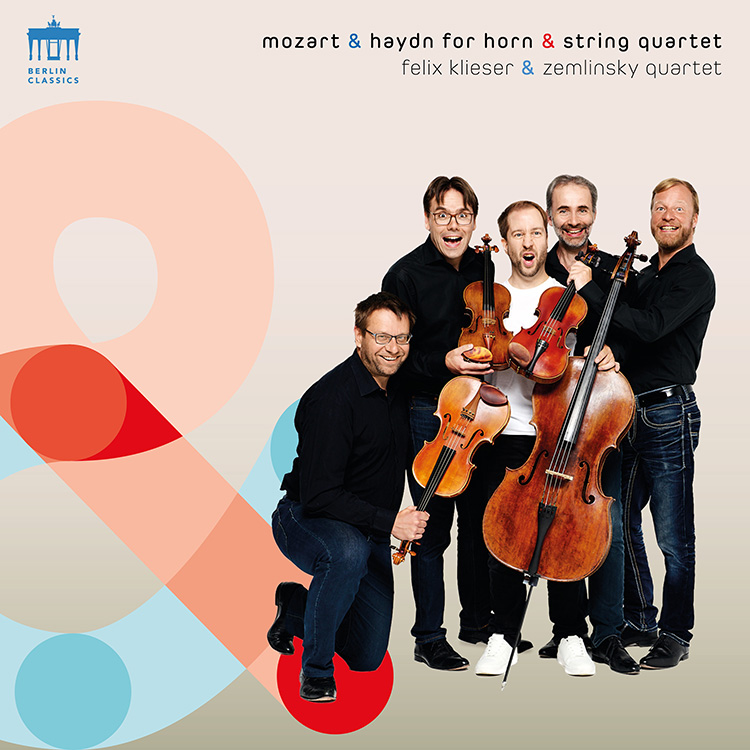
Release Date : 01.04.2022
Label : Berlin Classics
Catalog ref.: 0302346BC
A soloist’s career path can often be a lonely one, especially for an exceptional instrumental soloist like Felix Klieser. It is then all the more inspiring when over the course of many years playing together, there is the opportunity to build and nurture close artistic and personal contacts with other musicians. Felix Klieser’s concerts with the Prague-based Zemlinsky Quartet therefore are understandably among his annual favourites, as they present an opportunity for the five musicians to come together and to show that many years of music-making together has forged them into much more than just another artistic ensemble. “I have played so much and so often with the Zemlinsky Quartet, and so we wanted to record a programme of music together,” he explains. What could be more suitable for such a project than Mozart and Haydn?
“The Horn Quintet is a real favourite of mine, in fact it may be the piece I like to play most,” is the hornist’s reaction to Mozart’s chamber works for the instrument. He has amply proved that he is very fond indeed of Mozart, having already recorded the Horn Concertos of Wolfgang Amadeus. Now comes the Quintet. “It is such great fun to play this music. It’s like being a child in a sweet shop who is told: ‘you’re allowed to pick up anything and you can eat as much as you like.’ You go tumbling from one mood into another, interchanging between unbounded jubilation and deepest despair in the space of two bars; you really have to be on your toes – it’s intensive stuff.”
Felix Klieser and the Zemlinsky Quartet have paired Mozart’s Horn Quintet with the two horn concertos by Joseph Haydn. “My mindset has changed; compared with how I used to play these concertos, I am a different person today,” Felix Klieser explains with regard to the Haydn horn concertos, which he has already recorded with the Württemberg Chamber Orchestra. Arranged for solo horn and string quartet, the chamber-music version brings out the interaction as “much more spontaneous, more personal, more delicate”. He goes on: “the fact that each part is played by a single instrument means that it has its own sanctuary, its own significance.” The differentiation only becomes evident in the transparent sound and the close coordination between the musicians. “Nowadays I tend to play with more verve and more impulsively, something I wouldn’t have dared to do a few years ago.”
As with his previous album Beyond Words, featuring arrangements of Baroque arias, this new album again includes a number of transcriptions. The four Mozart arias from The Marriage of Figaro, Don Giovanni and The Magic Flute are a welcome addition to the horn repertoire. At the same time, Felix Klieser is a big fan of such adaptions: “I love playing arias, because the phrasing, the breath technique and the horn’s ability to carry the song part are all identical. The articulation and timbres are of course different, and one mustn’t attempt to copy the original. But the basic idea of this music functions perfectly because the basic criteria for the interpretation is the same.”
Beyond Words – Baroque Arias for Horn
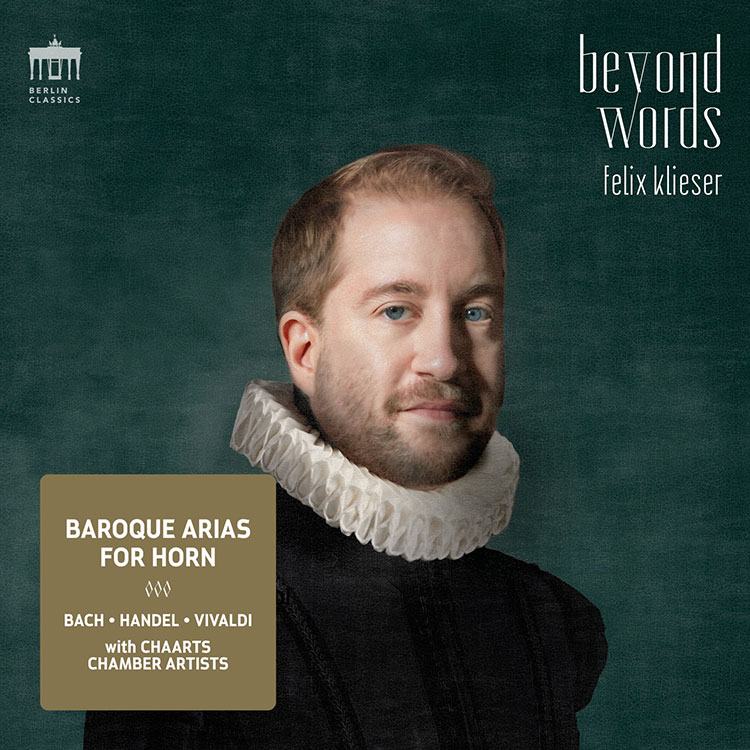
Release Date : 19/02/2021
Label : Berlin Classics
Catalog ref. CD: 0301460BC
Felix Klieser, on his new album Beyond Words, focuses on the language of music, the stories that it tells – all without any words at all. He places the emphasis on the images that arise before our mind’s eye when listening to the music, on the emotions triggered by the music. For Beyond Words the hornist has chosen various arias by Bach, Vivaldi, Handel and Gluck, each of which describes the various, self-contained musical worlds they encompass in a very individual manner.
For many listeners, the repertoire will probably conjure up memories, since many people will be very familiar with Handel’s Hallelujah Chorus and Ombra mai fù or Bach’s Bereite dich Zion and Wohl mir, dass ich Jesum habe. On this album, they will hear them in a very different form: the choice of Baroque arias and chorales by the master composers Johann Sebastian Bach, Antonio Vivaldi and George Frideric Handel gives the horn the role of the human voice, allowing it to trace the melodic flow and imitate the sound of the voice. Klieser is accompanied by the CHAARTS Chamber Artists ensemble, founded in 2010 in Zurich, Swizzerland. The musicians are able, in harmony with Klieser’s soft timbre, to breath new life into the Baroque works with their modern instruments.
What is really important for his album however is not virtuosity, but tonal expression, according to Felix Klieser: “It needs to be easy to put into action. The songfulness and the expressive range of sound should always be at the heart, always be the focus.”
Listeners are being told a story that is open to any interpretation at all, and this allows them to immerse themselves in a purely musical world. “They don’t have to know what is happening content-wise, just let themselves be led by the music.”
From the point of view of content, the stories told in the arias could hardly be more different. They tell of praise and worship, of horrible fates and freedom lost; problems that were in existence when the works were composed and that are still relevant to this day. “When we play music that is very old, we are communicating with means of expression that people had long before there were such things as smartphones, or airplanes or cars – and yet the subject of music back then was no different to today. That seems to be something that can still move us today, and I find that fascinating.”
The universal, connecting element attributed to music that still seems up-to-date across the centuries is not down to the language of words. It lies in the language of its sound and the associations, emotions and stories that are being related. “You don’t need years of music training in order to connect with music. As a performer, it’s not important whatyou’re trying to communicate, but the fact that you succeed in getting your message across,” says Klieser, who is an expert in that language like no other. Through Beyond Words he has created a sphere beyond the language – he speaks through music and melody alone.
Mozart Horn Concertos 1-4
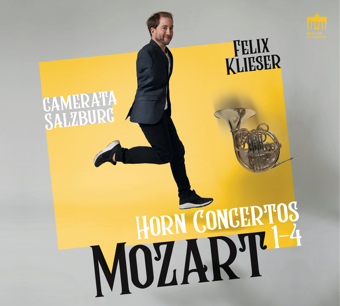
Release Date : 01/03/2019
Label : Berlin Classics
Catalog ref. CD: 0301188BC
Catalog ref- VINYL: 0301189BC
At the tender age of nine, Felix Klieser dreamed of being able to play Mozart’s horn concertos. Today, 18 years later, that dream has finally come true and Felix Klieser now performs on the world’s foremost concert stages, playing the very works which are part of any horn player’s core repertoire. Yet he took his time before recording all four of Mozart’s horn concertos: only after releasing three successful CD albums and winning an ECHO Klassik award and the Leonard Bernstein Award did he go to Salzburg, in September 2018, to record them with the famous Camerata Salzburg ensemble. The album will be released on March 1, 2019.
Mozart always composed his works for wind instruments with a specific soloist in mind. Numerous anecdotes about those musicians and their relationship to Mozart abound. This goes for the horn concertos. The horn player Joseph Leutgeb, a close childhood friend of Mozart’s, was more than once the butt of the composer’s innate love of jests, mockery and similar sorts of nonsense. We know that Leutgeb once had to kneel in a corner until Mozart had finished composing, and was then ridiculed as an ass, ox and fool. Even in 1791, the year of his death, Mozart could not resist making fun of his friend, gleefully writing to his wife Constanze that he had called on Leutgeb as “a long-standing close acquaintance from Rome”, prompting Leutgeb to spruce himself up “like on a Sunday, putting on his finest clothes, and beautifully coiffed”. Nor could Mozart resist telling his “Stanzerl” how things had gone: “You can imagine how we laughed at him. I simply must have a fool on hand.”
Interpreting Mozart’s music is however not all fun; it requires hard work. Felix Klieser reports on his many years of studying and performing the music: “Sometimes, there is just half a bar between sorrow and joy. Working out the refinements of this music was perhaps the biggest challenge of this project. I consciously allowed myself plenty of time to familiarise myself over years with each little detail of this fantastic music and to work out my own interpretation of it, paying the greatest of respect to the composer.” The spirit of Mozart is nowhere more palpable than in Salzburg, the composer’s home city and nowadays something akin to a cult site. And there can hardly be a more suitable orchestra to play with than the Camerata Salzburg, since his music is in their blood. It is thanks to this constellation that Felix Klieser was able to present the perfect ideal of his take on Mozart’s music. “I am proud and immensely grateful that this childhood dream has now come true with the wonderful Camerata Salzburg. There can hardly be any other orchestra that gives such fantastic performances of Mozart’s works. Together we have explored the simply endless spectrum of the Mozartian sound world,” the hornist enthuses.
Camerata Salzburg is one of the leading chamber music orchestras worldwide. Their concert activities on home ground in Salzburg are enhanced by invitations to the great concert venues of the world, including New York and Beijing. The Camerata is one of the permanent ensembles at the Salzburg Festival and the Mozartwoche festival.
Horn Trios
Felix Klieser first began to take a serious interest in the Horn Trio of Johannes Brahms (1833–1897) at the age of thirteen. Back then he was just a junior student at the College of Music and Drama in Hanover. He bought several different recordings of the work, including one featuring the hornist Peter Damm, whom he was later to meet at a master class in Dresden. “I picked up quickly that Felix was extraordinarily talented. He was able to elicit from the horn a soft, warm sound, a distinctly Romantic horn tone,” says the former horn-player of the Dresden Staatskapelle in high praise of Klieser in the booklet text to the young musician’s new CD entitled “Horn Trios”, released on the Berlin Classics label on September 29, 2017. “The Brahms Trio is the pride of the horn literature,” according to Peter Damm, a view he shares with Felix Klieser. That led him to seek out other such works, perhaps even unknown literature from the horn trio genre. He came across the French composer Frédéric Nicolas Duvernoy (1765–1838), who was hornist at the Paris Opera, Fauré pupil Charles Koechlin (1867–1950) and the Mannheim-born Robert Kahn (1865–1951) who was hounded by the Nazis. The result is a programme of works spanning nearly 100 years of development of the horn trio, which bring Felix Klieser a further step towards his goal: to place the horn centre stage as a colourful and profoundly Romantic instrument. “I am pleased to take you on a new journey through the world of the horn,” he begins his personal foreword to the CD booklet. Such a plan requires the right chamber music partners, whom Felix Klieser has happily found: at the piano sits the outstanding and sensitive Herbert Schuch, while the violin is played by the Ukrainian ARD competition winner Andrej Bielow.
“It was a wonderful experience for us to learn these pieces, some of them quite new to us, thereby expanding the scope of the chamber music genre in an exciting way,” enthuses Felix Klieser. The three musicians have known each other for years. Before playing together in a range of different formations, Felix Klieser even took courses as a young student with his two colleagues, 10 and 12 years his senior. “Horn Trios” is Felix Klieser’s third CD. His debut album “reveries” (2013) featuring Romantic music for horn and piano earned him an ECHO Klassik award as “Newcomer of the Year”. In 2015, he released the CD “Horn Concertos” with works by Joseph Haydn and his younger brother Michael and Wolfgang Amadeus Mozart, recorded with the Württemberg Chamber Orchestra of Heilbronn under Ruben Gazarian. That same year, he received the Leonard Bernstein Award at the Schleswig-Holstein Music Festival. His book entitled “Fussnoten – Ein Hornist ohne Arme erobert die Welt” (“footnotes – a horn-player without arms conquers the world”, 2014, published by Patmos) has since been translated into Japanese and Chinese, to accompany his tours to those countries. This new recording confirms to all those who recognised his talent at a young age and encouraged him and believed in him, that Felix Klieser is an exceptional artist. The young student has now risen to be a master of his instrument.
Horn Concertos
The full spectrum of the horn’s aural range. ECHO prizewinner Felix Klieser now follows his debut featuring Romantic chamber music with a second album: an orchestra recording of works by Joseph and Michael Haydn and by Mozart. This album is a Classical one! While the first of Joseph Haydn’s two horn concertos calls for the high-register horn, the second was composed for its lower-tone brother. Horn players generally specialize in one or other instrument. Felix Klieser plays both. “Addressing the requirements demanded of players of both the high and low horn on one single CD was a challenge for me, but it was a task I relished: it meant I could present the full spectrum of the instrument’s aural range,” enthuses the young hornist, born without arms, who declared his wish to play the horn at the age of four. Unlike the concertos by his famous older brother, Michael Haydn’s Concertino for Horn and Orchestra is seldom heard in concert.
And Mozart? The closing horn concerto is one reconstructed from two fragments, and seldom played; one might call it Mozart’s “zero concerto”. “All of the works share a certain lightness and cheerful manner. That was the link that brought these three works together on one CD,” explains the 27-year-old musician. In the renowned Würtemberg Chamber Orchestra of Heilbronn under the direction of Ruben Gazarian he has found the perfect partner for his endeavour. “We worked on the music with a great degree of intensity and passion, as well as fun and enjoyment. May I invite you to share this enjoyment with me when you listen to the music.”
Reveries
The young hornist Felix Klieser is an exception. Not only is he, at the age of 22, already one of the best horn players in the world, but he has mastered his instrument perfectly despite his handicap. Felix Klieser was born without arms and plays horn with his feet. How does it work? “No problem” says the young artist and shows his tripod. The instrument is attached to it, in range to the mouth. He sits behind it and lets his foot take over what other horn players do with the left hand: operate the valves.
Already as a five-year-old he was given horn lessons after convincing his parents of his firm intention to learn this instrument. Felix Klieser proves himself to be a highly talented musician – at the age of 17 he became a junior student at the Hanover University of Music and Drama. He is awarded the “German Music Prize” in the competition “Jugend musiziert” and is awarded the “Life Award” in the category “Art and Culture”. Klieser played with Sir Simon Rattle at the Berlin Philharmonic and performed with Sting on his world tour. In 2011 he takes up the regular music studies in Hanover. There he meets the pianist Christoph Keymer, who has accompanied him on the piano since then.

